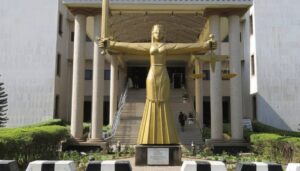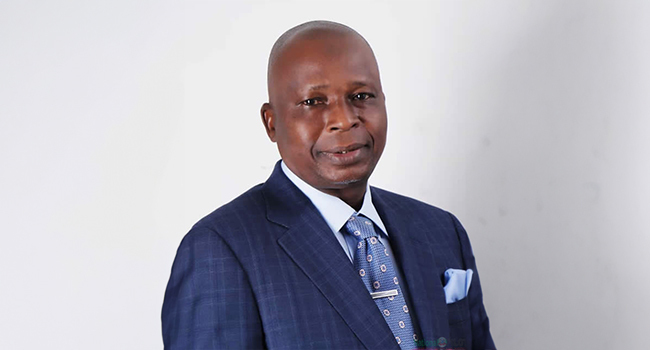The Minister of Justice and Attorney-General of the Federation (AGF), Lateef Fagbemi, has made a bold declaration, stating that individuals convicted of corruption should be excluded from receiving state pardons. He proposed that those found guilty of corruption should not be able to benefit from the powers of the prerogative of mercy, a mechanism that allows the government to grant leniency to convicted individuals. Speaking at a roundtable event organized by the Independent Corrupt Practices and Other Related Offences Commission (ICPC) for state commissioners of justice in Abuja, Fagbemi emphasized that this measure would act as a deterrent to potential offenders, reinforcing the government’s stance against corruption.
Fagbemi’s remarks underscore his commitment to strengthening the legal framework surrounding anti-corruption efforts in Nigeria. During his address, he made it clear that he intends to suggest this change in the next constitutional review, aiming to prevent individuals convicted of corruption from being eligible for state pardons. “I will suggest in our next constitution review exercise that we expunge those found guilty of corruption from benefiting from powers of the prerogative of mercy to serve as a deterrent to others,” Fagbemi said. This stance reflects a growing concern over the misuse of state pardons, which are often seen as a loophole that allows high-profile criminals to evade the full consequences of their actions.
The Attorney-General’s comments come at a time when the Nigerian government is grappling with widespread corruption across various sectors. Corruption has not only undermined governance but has also contributed to economic instability and public mistrust in government institutions. By pushing for such constitutional reforms, Fagbemi is seeking to close any existing gaps in the justice system that may allow convicted individuals to escape justice through executive clemency.
 Fagbemi also highlighted the importance of collaboration among key stakeholders in the fight against corruption. In particular, he called on state attorneys-general to avoid allowing external influences, such as nepotism, political vendettas, or ethnic biases, to interfere with their decision-making processes. He warned against yielding to pressure from political authorities, especially governors, urging them to remain impartial and focused on their legal duties. This call for professionalism is especially critical, given the perception that anti-corruption efforts can sometimes be swayed by political rivalries or be used as tools for personal vendettas.
Fagbemi also highlighted the importance of collaboration among key stakeholders in the fight against corruption. In particular, he called on state attorneys-general to avoid allowing external influences, such as nepotism, political vendettas, or ethnic biases, to interfere with their decision-making processes. He warned against yielding to pressure from political authorities, especially governors, urging them to remain impartial and focused on their legal duties. This call for professionalism is especially critical, given the perception that anti-corruption efforts can sometimes be swayed by political rivalries or be used as tools for personal vendettas.
In his speech, Fagbemi did not shy away from addressing the issue of corruption within law enforcement and anti-graft agencies themselves. He urged these agencies, including the ICPC and the Economic and Financial Crimes Commission (EFCC), to ensure that cases are thoroughly investigated before suspects are arrested. According to him, this approach would prevent what he termed “media trials,” where individuals are prematurely paraded as criminals before a proper investigation has been conducted. “We should not give in to public sentiments. In Nigeria, we are polarised along political lines. Let us be thorough and take our time before inviting someone for questioning,” he advised. His comments reflect a broader concern about the tendency of certain high-profile cases to be sensationalized in the media, often without adequate evidence to substantiate the claims.
Fagbemi stressed that anti-corruption agencies must be meticulous in their investigations. He pointed out that the rush to make arrests and generate headlines can sometimes result in weak cases that do not hold up in court, thereby undermining the credibility of the anti-corruption fight. He advised against quick victories and instead advocated for quality over quantity when it comes to prosecuting corruption cases. “If it is two or three big fish you are able to get in a year and you are thorough, it is alright,” he noted, signaling that a more measured and careful approach would be more effective in the long run.
The minister’s statements align with the government’s broader goal of reforming the justice system to better handle corruption cases, particularly those involving powerful individuals. His suggestion to bar convicted individuals from state pardons is seen as part of a larger effort to ensure that corruption cases are not treated lightly, and that those found guilty face the full weight of the law. This initiative could also reduce the perception of impunity that has long plagued Nigeria’s political and economic landscape.
Furthermore, Fagbemi’s remarks reflect a zero-tolerance policy towards corruption, which he has demonstrated by his recent warning to government agencies. In August, he made it clear that he would not hesitate to take action against any government body found to be engaging in corrupt practices. This statement reinforces the idea that no institution or individual is above the law, and it serves as a warning to public officials that their actions will be scrutinized. He encouraged lawyers and members of the public to come forward with information on corruption, assuring them that such reports would be thoroughly investigated and appropriate steps taken.
This message of transparency and accountability is crucial for restoring public trust in the justice system. Fagbemi’s appeal to legal practitioners and ordinary citizens alike underscores the role everyone has to play in fighting corruption. He urged the public to be vigilant and proactive in reporting any suspicious activities, while reassuring them that their reports would not be dismissed without due consideration. This approach also aligns with the government’s ongoing push for greater public participation in governance, particularly in the area of whistle-blower protections.
The AGF’s focus on thorough investigations and the integrity of legal processes suggests a shift away from the politically charged nature of past anti-corruption efforts. His comments about the importance of avoiding political witch-hunts and nepotism are particularly noteworthy, given Nigeria’s polarized political climate. By encouraging a more objective and methodical approach, Fagbemi is advocating for a justice system that is not influenced by external factors and remains committed to upholding the law.
In conclusion, Lateef Fagbemi’s proposals and warnings signal a robust new phase in Nigeria’s battle against corruption. His insistence on excluding convicted individuals from state pardons and his emphasis on thorough investigations demonstrate a clear intention to reform the system. While challenges remain, particularly in ensuring that anti-corruption agencies remain independent and unbiased, the AGF’s firm stance offers hope that significant progress can be made in the fight against corruption. As the constitutional review process begins to take shape, it remains to be seen how these proposals will be received and whether they will translate into concrete legal reforms. However, Fagbemi’s dedication to this cause is an important step in the right direction.




